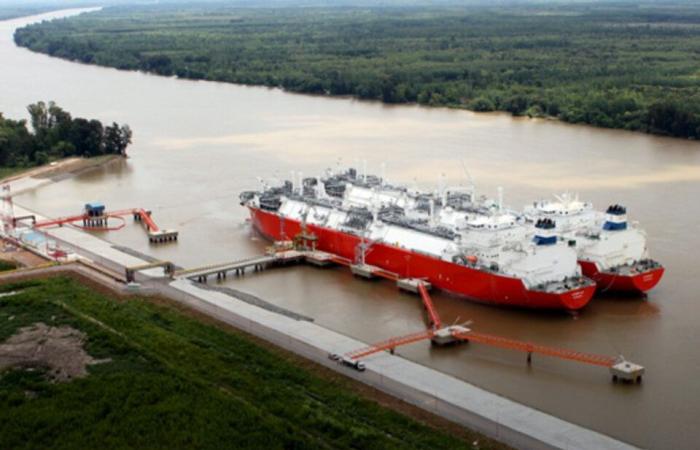
After having unsuccessfully tried to transfer to them the price of Liquefied Natural Gas (LNG) that it will import during this winter, the government returned to the charge this week and It was decided that distributors must pay state-owned Enarsa an additional cost of US$ 2.16 MMBTU for the additional gas who need the Escobar import terminal to cover the peak demand during the coldest days of the year. The measure generates controversy because The government seeks to ensure that companies absorb that extra price without passing it on to the end user.. In this way, they would be able to reduce subsidies without having to validate a greater rate increase. The main executives of the companies met this Thursday with the controller of Enargas, Carlos Casares, to express their discomfort about the issue, according to private sources consulted by EconoJournal.
The news became known last Monday when Enarsa sent a note to the authority responsible for the Electronic Market of Gas SA (Megsa), which it agreed to. EconoJournalwhere it asks you to update the gas sales price that the company itself markets for the spot rounds intended for priority demand, adding an additional price above the price set in resolution 93/2024, which is around US $ 3.35 MMBTU. In Saliquelówhere it ends Néstor Kirchner Gas Pipelinethe additional is US$ 0.94 MMBTU, in Cardaleswhere the Mercedes-Cardales Gas Pipelineis US$ 0.99 MMBTU and in the Escobar regasification terminal the extra cost reaches US$ 2.16 MMBTU.
Enarsa informed Megsa because it is in that electronic market, which operates in the Stock Exchangewhere additional gas purchases are made for cold days, outside of the volumes already firmly contracted in the Gas PlanThis means that when distributors go to Megsa to obtain gas to cover peak demand, they will have to pay this additional amount, which amounts to US$2.16 MMBTU, but they will not be able to transfer it to the tariff because the tariffs were not modified after that note and the official intention is not to do so.
Pass through principle
The measure is controversial because decree 1738/1992, which regulates the gas law 24.076, establishes in point 5 of its Article 37 that “Variations in the gas acquisition price will be transferred to the final rate for the user in such a way that they do not produce profits or losses for the distributor or the transporter”. That is to say, the gas sector is governed by the principle of pass through or economic neutrality. Therefore, if distributors increase the price of gas, they must pass that price on to the end user or the State must take charge through subsidies, as has been happening for the last 20 years.
The distributors decided not to validate this official decision and did not appear at the auction organised this week at the Megsa stating the volume of additional gas that they will need for July. They do not want to face an extra cost that, in the case of gas from Escobar, equivalent to almost 65% of the price set in the Gas Plan.
What happens if they don’t pay?
If the distributors maintain their position and do not validate this extra cost, a bid will begin to see who takes over the account, but this fight should not, in principle, put the gas supply at risk because It is assumed that Enarsa is not going to interrupt the supply for that reason.

